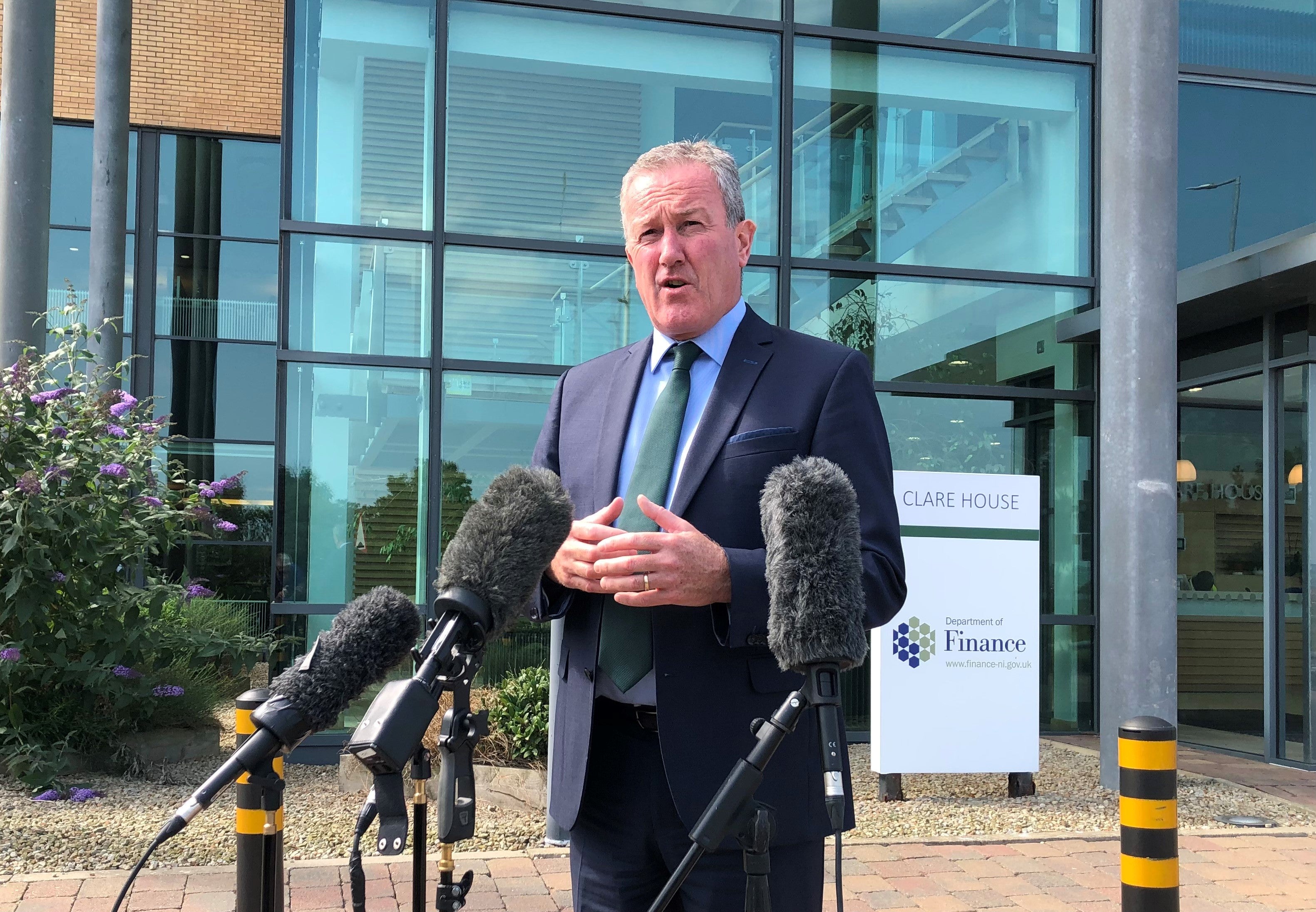Inflation reduces Stormont spending powers by £375m, Murphy warns
The figure reflects the soaring costs of operating public services.

Your support helps us to tell the story
From reproductive rights to climate change to Big Tech, The Independent is on the ground when the story is developing. Whether it's investigating the financials of Elon Musk's pro-Trump PAC or producing our latest documentary, 'The A Word', which shines a light on the American women fighting for reproductive rights, we know how important it is to parse out the facts from the messaging.
At such a critical moment in US history, we need reporters on the ground. Your donation allows us to keep sending journalists to speak to both sides of the story.
The Independent is trusted by Americans across the entire political spectrum. And unlike many other quality news outlets, we choose not to lock Americans out of our reporting and analysis with paywalls. We believe quality journalism should be available to everyone, paid for by those who can afford it.
Your support makes all the difference.Soaring costs have reduced Stormont’s spending powers by £375 million, Northern Ireland’s Finance Minister has warned.
The Department of Finance figure estimates the effect of inflation on the multi-billion pound settlement allocated to Northern Ireland by the Treasury in last autumn’s three-year spending review.
Conor Murphy highlighted the spiralling costs of running public services as he urged Chancellor Nadhim Zahawi to boost financial support to the region to reflect the inflationary pressures.
Mr Murphy has joined with his counterparts in Wales and Scotland to call on Mr Zahawi to increase targeted support for those worst impacted by the cost-of-living crisis.
In a joint letter, Mr Murphy, along with Rebecca Evans and Kate Forbes, said that further action is needed to support households and businesses ahead of another increase in energy prices.
They also urge the Chancellor to develop a “fair approach” to public sector pay and ask for an increase in devolved budgets to deal with emerging pressures, including in the health service.
Speaking to reporters in Belfast, Mr Murphy said: “The fact is that with inflation now we have, at a conservative estimate, about £375 million less to spend than we would have had with the budget.”
Mr Murphy has previously said that the ongoing power-sharing impasse at Stormont has left ministers unable to access £435 million it could be spending if a functioning devolved executive was in place.
The DUP has blocked the formation of an executive as part of its protest against Brexit’s Northern Ireland Protocol.
Commenting on the added impact of inflation on Stormont’s coffers, Mr Murphy added: “All of these issues are adding pressures on a situation which would be barely tolerable with a functional executive but, in the absence of an executive, it means that we are really struggling to get decisions taken, struggling to give proper advice to departments that they can depend upon.”
The finance minister emphasised the need for the Government to make sufficient funds available to enable Stormont to make public sector pay awards that reflected inflation.
“We want to see fair pay for people and public sector workers,” he said.
“People in No 10 and No 11 Downing Street were starting out applauding public sector workers during the pandemic, (acknowledging) how essential they were to society here.
“There is an opportunity now to ensure that there is sufficient support to make fair pay awards to public sector workers.”
There has been uncertainty on how Northern Ireland households will receive a £400 payment in the autumn to help with energy costs.
The measure was announced by the Treasury earlier this year but the lack of executive at Stormont has placed doubt over whether the cash could be allocated in the region.
On Monday, Mr Murphy expressed confidence that an agreed mechanism for distributing the cash would be found. He said work with Treasury officials on the issue was ongoing.
“We’re working with them on that, we’ve been working very diligently with them, we want to get that £400 out to households and we hope that we can make progress on that very soon,” he said.
Even with the state of uncertainty in British politics, there is a need for Treasury and whoever is in the post of Chancellor to start taking some decisions now
Mr Murphy was also asked about the uncertainty over Mr Zahawi’s future as chancellor amid speculation he could be replaced once a new prime minister takes office.
The Finance Minister said he was aware of suggestions that major cost-of-living measures may be delayed until the autumn statement. He said that was too long to wait, particularly for many struggling businesses.
“We recognise that there is a high degree of uncertainty and flux in politics over in London and that’s not helping our situation here,” he said.
“But we have a responsibility collectively to try and represent the interests of the people that we are responsible for and we want to ensure that the Treasury had a very early sense of the collective issues that we feel need to be addressed by them in the time ahead.”
He added: “We think there is a need, even with the state of uncertainty in British politics, there is a need for Treasury and whoever is in the post of Chancellor to start taking some decisions now, ahead of the autumn, ahead of the deepening of this crisis.”
Mr Murphy also reiterated his call for the DUP to reengage with power-sharing.
He said the unionist party could still pursue its campaign against the protocol at Westminster but insisted there was no justification for blocking devolution at Stormont over the issue.